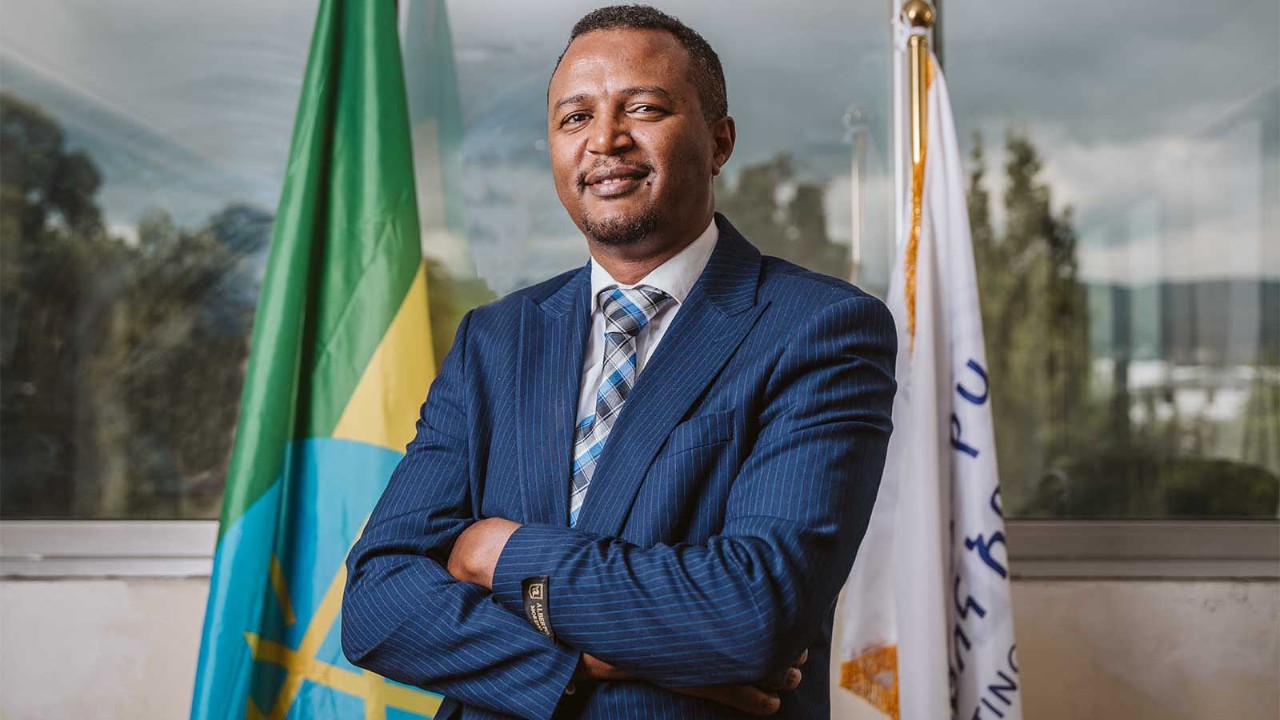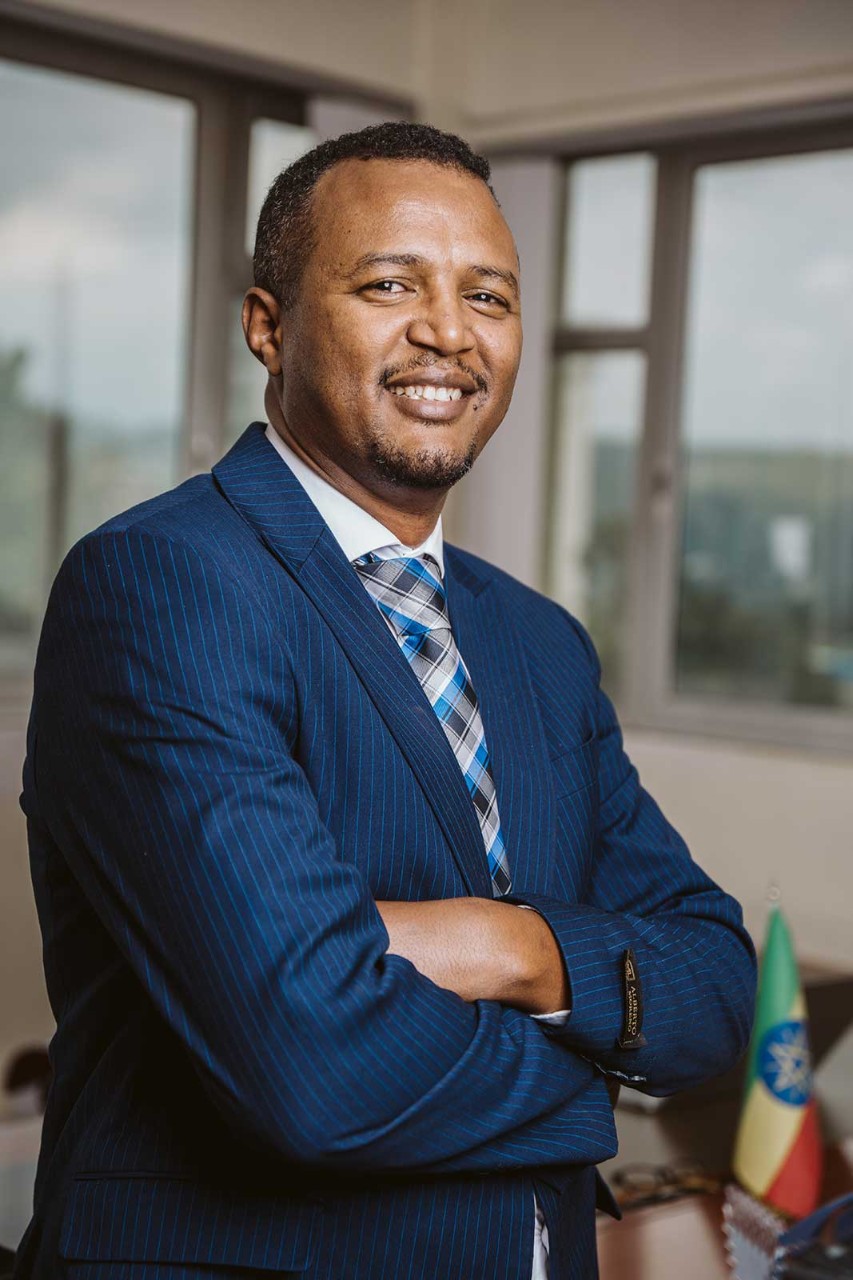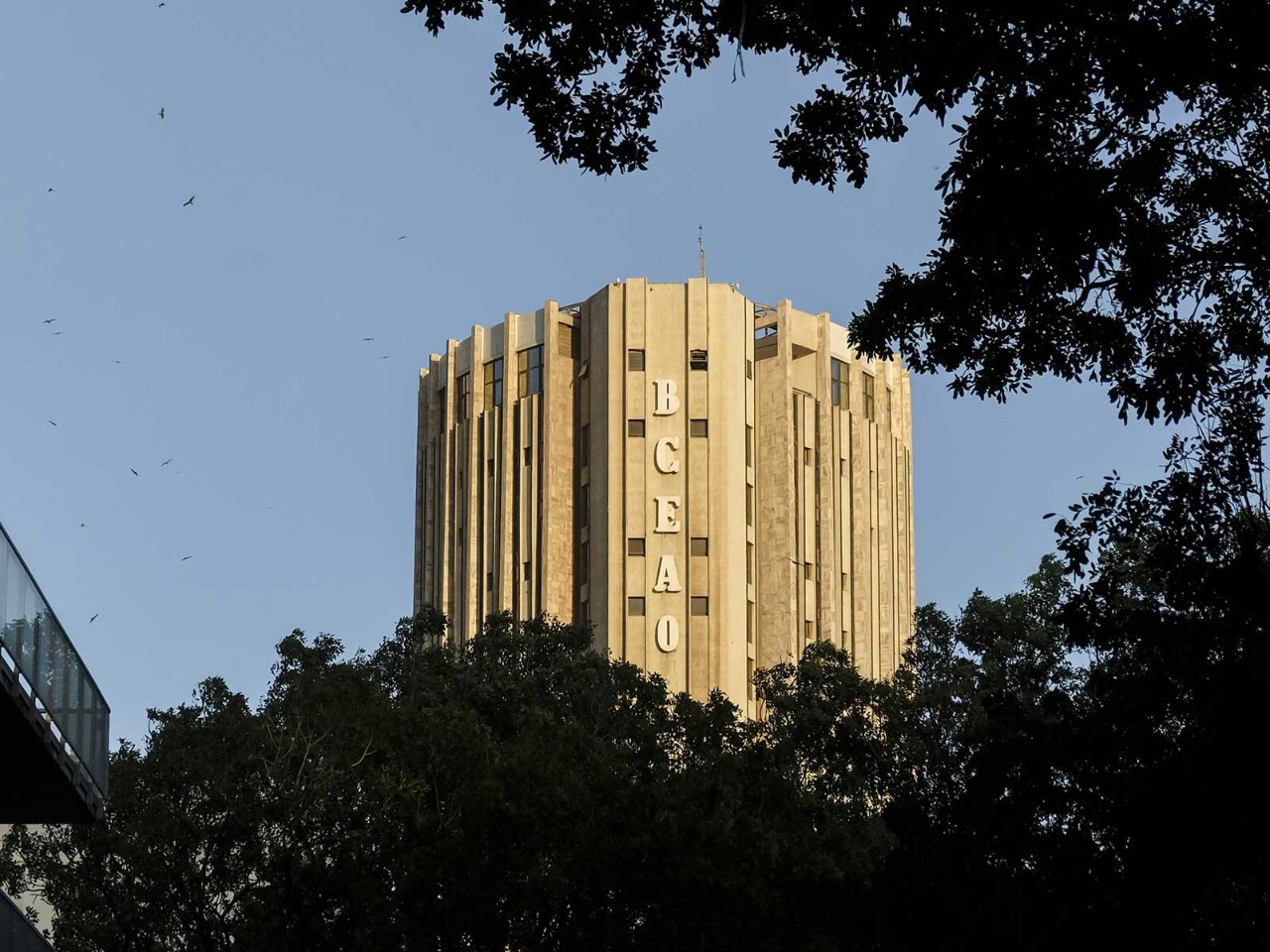
When Barnabas Ayalew FCCA, the head of internal audit at Desert Locust Control Organization for Eastern Africa (DLCO-EA), saw his first locust swarm, he was horrified. ‘They cover the sun, they cover everything. It’s catastrophic,’ he says.
He joined the Addis Ababa-headquartered non-profit organisation, which was established in 1962 with a mandate to undertake aerial surveys and control of migratory pests across the region, just as the locust plague of 2019–22 began, following a 20-year career in Ethiopia's capital across both practice and corporate sectors.
Formerly a unit of the UN’s Food and Agriculture Organisation (FAO), DLCO is funded by nine East African countries, including some of the region's poorest. As well as locusts, it also monitors plagues of African armyworm (a caterpillar), tsetse fly and quelea birds.
Each catastrophic locust swarm begets another
Catastrophe
Seeing the 2019 swarms left Barnabas in no doubt about his decision to be part of DLCO's work. ‘Until you see the actual catastrophe caused by the pests, you struggle to understand the seriousness of the issue,’ he says.
Even a medium sized locust swarm can consume 80,000 tons of vegetation or crops in a single day, enough to feed a population of 100,000 for a year. Officials feared that the 2019 outbreak might devastate crops so badly that an extra one million people would need food assistance. And with one locust swarm begetting another, the challenge remains very real.
‘The first of Desert Locust’s many challenges is funding’

Funding risk
Barnabas’s role is to ensure Desert Locust manages effectively the risks it faces. Funding is the key issue at the moment, with contributing countries strapped for cash. ‘As we are speaking, there are a lot of challenges,’ he says.
‘The most significant is funding. The economic situation in the member countries is not good, so they are not able to pay contributions on time.’
That could threaten Desert Locust’s ability to run its fleet of six insecticide-spraying aircraft. There is also a risk to its research and forecasting operation, which delivers critical information about the potential for outbreaks of the pests it monitors. 'We have to ensure that our limited funding is well spent,' Barnabas says.
Part of his own contribution to making the organisation more efficient comes from his wide range of experience in the finance sector. ‘I have had exposure to other organisations, such as Unilever,’ Barnabas says – he worked there for two years as a financial controller before joining Desert Locust. ‘I have seen different working cultures, different working environments. I try to bring them to this organisation.’
In fact, Barnabas had been the external auditor for Desert Locust before he joined it but, he says, being on the inside brings an entirely different viewpoint. ‘When you come in as an external auditor you don’t understand the magnitude of the problem organisations face.'
CV
2022
Audit quality reviewer, Accounting and Auditing Board of Ethiopia (AABE)
2019
Head of internal audit, Desert Locust Control Organisation for Eastern Africa
2017
Financial controller, Unilever
2016
Internal audit service manager, Dashen Brewery
2012
Partnership auditor/internal auditor, Compassion International
2005
Audit manager, AW Thomas, Addis Ababa
‘Some auditors have not been comfortable discussing their deficiencies in quality reviews’
Improving audit quality
ACCA has been working in partnership with the Accounting and Auditing Board of Ethiopia on a project to support audit and audit quality assurance (AQA) in the country and develop capacity in this area. The project builds on earlier collaborations with AABE to support the development and regulation of the accounting profession in Ethiopia.
As part of the latest piece of work for AABE, which was funded by the World Bank’s International Development Association, ACCA produced manuals for audit, AQA and the IAASB's International Standard on Quality Management (ISQM), and provided in-person coaching and training for the board’s nascent audit quality assurance team. Following this, ACCA experts mentored the team as it undertook three audit quality assurance reviews at local firms.
Around 180 Ethiopian auditors also received online training in ISQM.
Passion for audit
The ongoing fight against pests is not Barnabas’s only focus. He also has an avowed passion for audit and audit quality which has seen him called upon to assist in the development and delivery of audit quality reviews in Ethiopia on behalf of the profession's regulator, the Accounting and Auditing Board of Ethiopia (AABE), as part of a project facilitated by ACCA (see panel).
He is an enthusiastic supporter of AABE's wider work to improve standards in financial reporting and audit in the country. 'Raising standards is fundamental for Ethiopia's future development and we need to build our capacity in this area,' he says. 'Wherever I go, I accentuate the importance of audit and audit quality.'
As the leader of a small team of AABE colleagues, he was the first to undergo training in audit quality assurance and has since consulted on AABE's behalf on audit quality reviews for some of the largest local audit firms. ‘It has opened our eyes in many, many ways,’ he says.
‘It’s a new culture, a new regulatory environment,’ he continues. ‘It is not easy for some auditors to accept some of the issues raised in audit quality reviews and a few individuals were not comfortable discussing their deficiencies.’
Scepticism
In many cases, the biggest issue is professional scepticism, Barnabas remarks.
‘Professional scepticism starts in the planning stage, where the auditor should not assume everything provided by the client is correct,' he explains. ’If the audit is wrong at this stage, the whole process will be wrong.’
Context may be important here. Until recently, financial reports have not been widely used in the country. That may change when Ethiopia launches a new capital market – it is expected to start operating in October 2024 – and potential investors become acutely interested in financial disclosures.
Without reliable financial reports backed by quality audits, it is difficult to generate trust among investors. ‘Prosperity will not come without a trusted system,’ Barnabas says.


